When it was released back in 2012, the original Dragon’s Dogma was one of the most inventive RPGs of its time. The game was a commercial success and received a decent critical response, but it didn’t quite get the fanfare it deserved. Of course, the original Dragon’s Dogma still had a lot of rough edges, but had it been released a few years later, it likely would have been appreciated much more. Now, over a decade later, Dragon’s Dogma 2 is finally here, and it feels less like a sequel and more like an “I told you so” moment at a time when gamers are begging for titles that don’t hold their hands and let them make mistakes with real consequences.
To say that Dragon’s Dogma 2 doesn’t hold your hand would be an understatement. Several quests only have vague directions and zero map markers, some enemies are completely immune to certain types of damage, and you will frequently be ambushed by goblins, dastardly thieves, and giant monsters with multiple health bars when you’re just trying to get back to town. All of these would-be frustrations combine into one of the most rewarding RPG experiences of this generation.

While there is a decent storyline to follow, Dragon’s Dogma 2 focuses on creating a “living, breathing world” with “deep combat,” “emergent gameplay,” and all those cliches that RPGs slap onto the back of the box. It’s a game that delivers on the promise of adventure, including all the tedium that comes with it. Limited fast travel, regular camping, food and supplies spoiling, quests failing after a few days, and other hurdles make the simple experience of being on the road immensely satisfying.
Dragon’s Dogma 2 also hearkens back to the days of classic RPGs by being obtuse on purpose in some regards. To solve this, the game simulates the experience of sharing stories with other players through the Pawn system, which allows you to summon party members from other players’ worlds. If a Pawn has found a hidden path, completed a quest, or discovered secret treasure in another world, they’ll guide you in the right direction or give you hints that bring you one step closer to your goal. Since Pawns don’t level up or gain experience while in your party, you’re encouraged to regularly swap out your AI companions and maintain the flow of information between players.
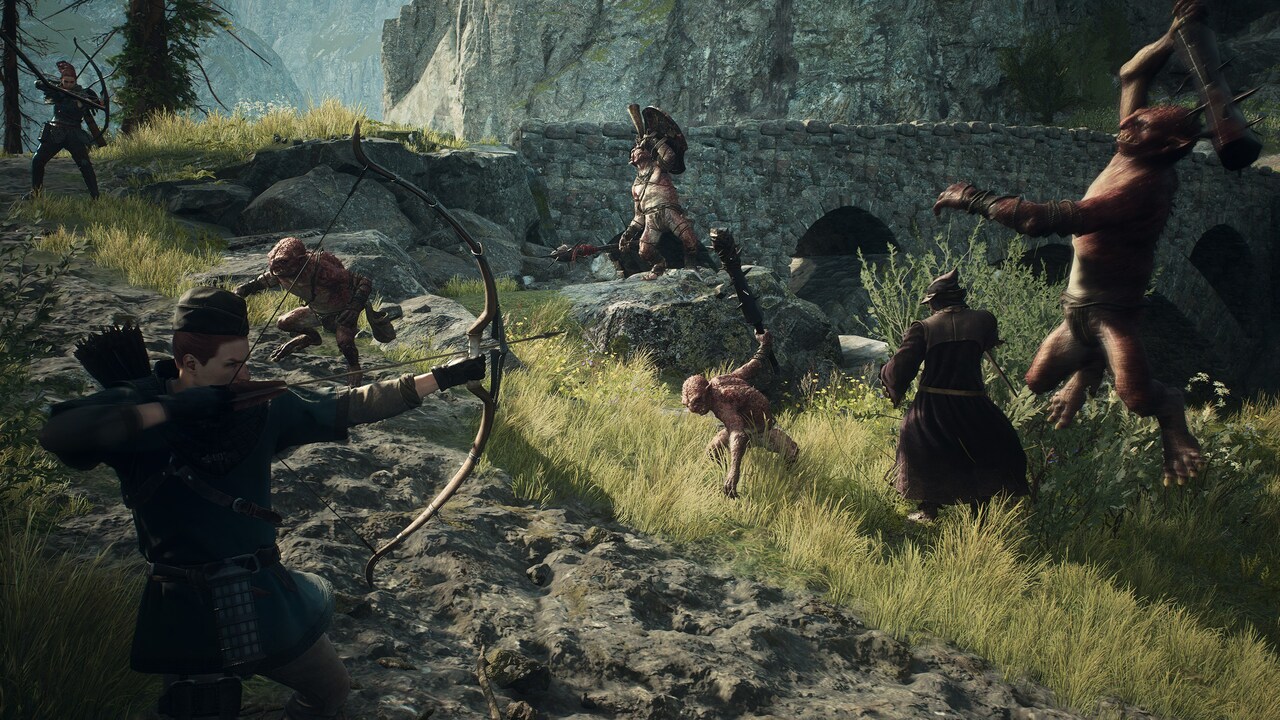
Even during the review period, sharing Pawns with other critics and media members was a delight. While Pawns still have some of their annoying quirks from the first game like repeating the same dialogue quips over and over, they contribute greatly to making Dragon’s Dogma feel alive. Hearing tidbits about other players favoring Beastren in their parties while traveling or throwing a goblin off a cliff only for a summoned Pawn to get excited to tell their own master about this thrilling new strategy goes a long way to making the strictly solo experience feel a lot less lonely.
Of course, the hurdles that the game makes you jump through would be more frustrating than satisfying if the rewards weren’t up to par, but Dragon’s Dogma has worthwhile loot waiting around every corner. Delving into a deep cave will often lead to a powerful new weapon or piece of gear, but Dragon’s Dogma has more unique rewards to offer.
Forgotten Riftstones throughout the world, for example, can unlock new filters for the Pawn system, letting you specifically search for silly things like tall women or helpful things like Pawns with certain abilities. Discovering a Pawn that can sell items for you from anywhere in the world or finding a Pawn that can speak Elvish is a huge help. Plus, because traveling throughout the realm has so many layers to it, Dragon’s Dogma 2 loves to dish out rewards like Ferrystones and Portcrystals that enable fast travel to encourage players to take on its toughest challenges.
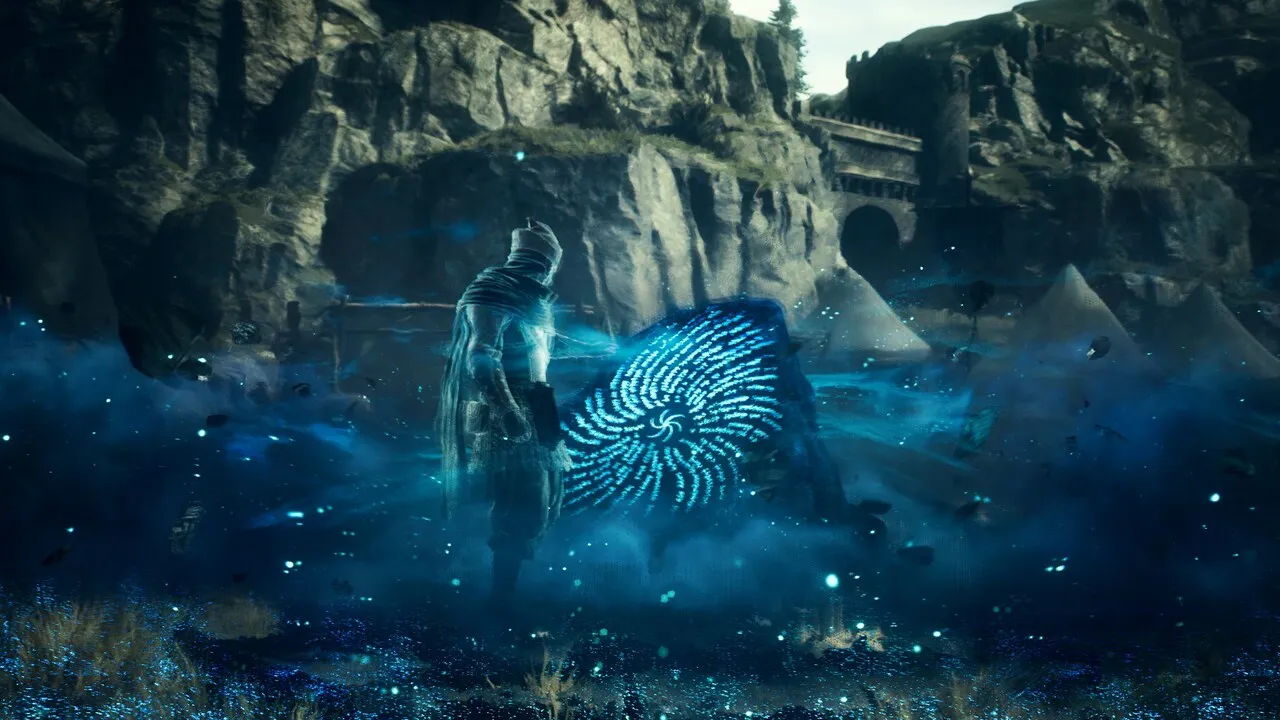
And the game has troves of tough challenges waiting for you, too. The roads are incredibly dangerous at low levels, and you won’t even dare to travel after the sun goes down for the first few hours of the game. Even in the safety of daylight, you’ll encounter cyclopses, minotaurs, ogres, and other monstrosities that are basically boss battles for undergeared adventurers. You’ll become a fearsome monster slayer after a few trips between towns, but the initial exploration of the world is tense.
Battles with these big beasts are where Dragon’s Dogma 2’s combat system really shines, however. Every enemy has strengths and weaknesses that you must counter in order to succeed, and these go beyond typical “use fire damage to win” strategies that you’d see in other RPGs. Ogres will automatically target women in your party, for example, and you can use this to your advantage. You can also cling to and climb large foes, letting you reach weak spots like a cyclops’ eye as long as you can manage your stamina and hang on long enough.
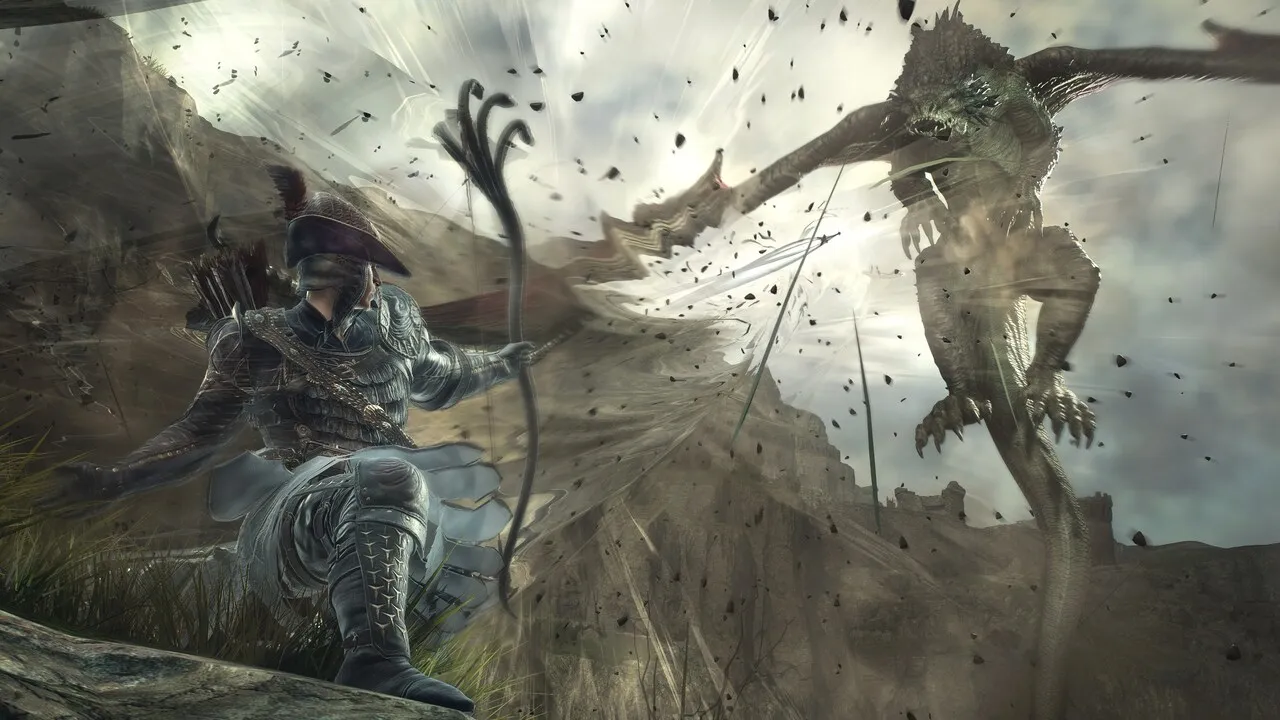
Most sword slashes and special abilities are slow and deliberate, and fast-paced Vocations like the Thief are ridiculously fragile. You’ll have to combine the strengths of each Vocation and make use of your environment to take down strong foes. Standard attacks might bounce off of a griffin most of the time, but having an Archer use a special arrow to douse it with tar and then having a Mage use a flamethrower spell to set it aflame will cause its health bar to melt away.
As the beast falls, a triumphant score flares up and your party descends upon its prey with critical hits and finishing blows. It’s moments like these that make Dragon’s Dogma 2 feel like the ultimate form of fantasy wish fulfillment.
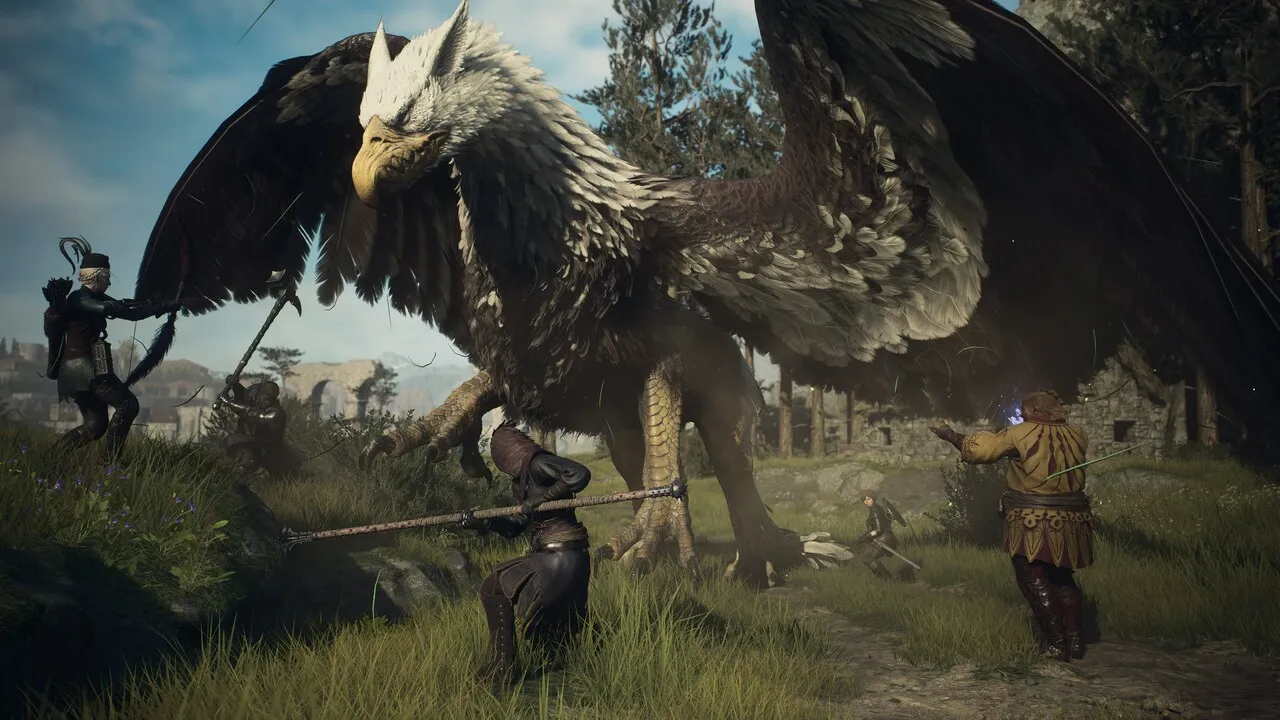
This style of free-form gameplay applies to Dragon’s Dogma 2’s quest design as well. One early side quest tasks you with following a beggar who has a suspicious amount of coin to his name, and after tailing him for a full day, I found his house but hit a progression wall where I just could not figure out how to get inside. After hours of thinking, I just took him outside of the city walls and threw him off a cliff to gain access to his home. Then, I just visited the morgue (where all dead NPCs end up before being permanently deleted from the game world) and revived him with a rare item called a Wakestone. It wasn’t the intended solution to this quest, but it worked.

The game leaves you to your own devices for most of its missions, even main story quests that would usually be easy in any other RPG. Speaking to NPCs and eavesdropping on conversations is crucial, but the game exercises restraint and doesn’t mark things on your map if you hear some important dialogue. You have to immerse yourself in the world, think for yourself, and find your own solutions. Especially in quests with big decisions and multiple outcomes, this adds a significant amount of weight to dialogue and exploration.
That weight carries over to Dragon’s Dogma 2’s gameplay, too, which is why the game just feels so good to control. Every character and item feels truly grounded in the world, and physics interactions make spells and attacks feel satisfying to land. You can even pick up rocks and other items to throw them at enemies or push over boulders to knock over groups of foes like bowling pins. It even adds to the lethality of combat, as you not only have to worry about an orge smacking you away with its club but also the wall that it launches you into. The level of intractability in Dragon’s Dogma 2’s combat and environments makes the world feel tangible in a way that other games could only dream of.
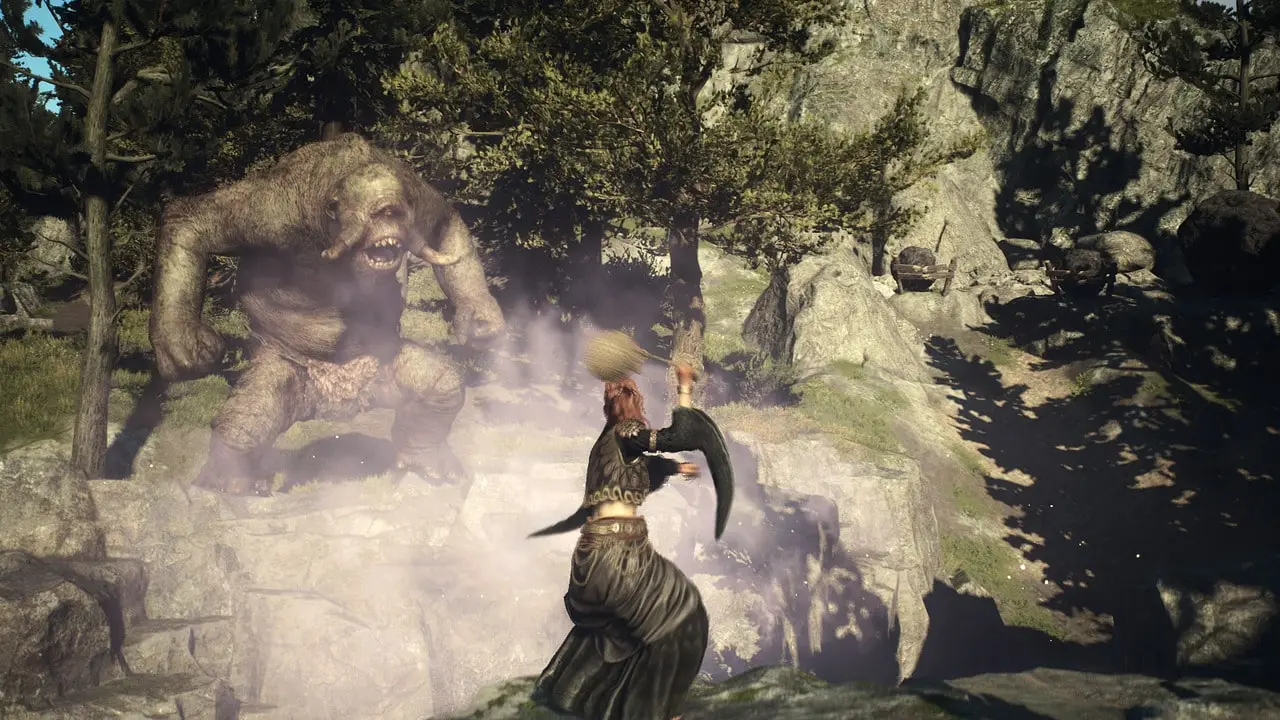
Unfortunately, the game buckles under the weight of its ambition and gorgeous visuals in the performance department. Dragon’s Dogma 2 utilizes an uncapped framerate, but it’s usually hovering around 30 FPS and will chug in towns and busy combat scenes. When things are already as hectic as they are during battles with spell effects popping off and visibility being low at nighttime, the performance issues just make things feel frustrating. There are very few moments where the game benefits from the uncapped framerate since it’s so demanding, so an FPS cap would be much appreciated.
Ultimately, Dragon’s Dogma 2 doubles down on what made the original game so great while streamlining just enough to make the game more accessible for a modern audience. There’s a vast, dangerous world out there to explore with weighty decisions to be made and tricky puzzles to be solved, but Dragon’s Dogma 2 trusts the player’s intelligence and won’t beat you down too hard as long as you meet it halfway. It’s a truly gameplay-forward RPG that leaves you to your own devices and isn’t afraid to let you make mistakes, and that alone is enough to give Dragon’s Dogma 2 a unique identity in today’s gaming landscape. Everything else it does well is just an added bonus on top.



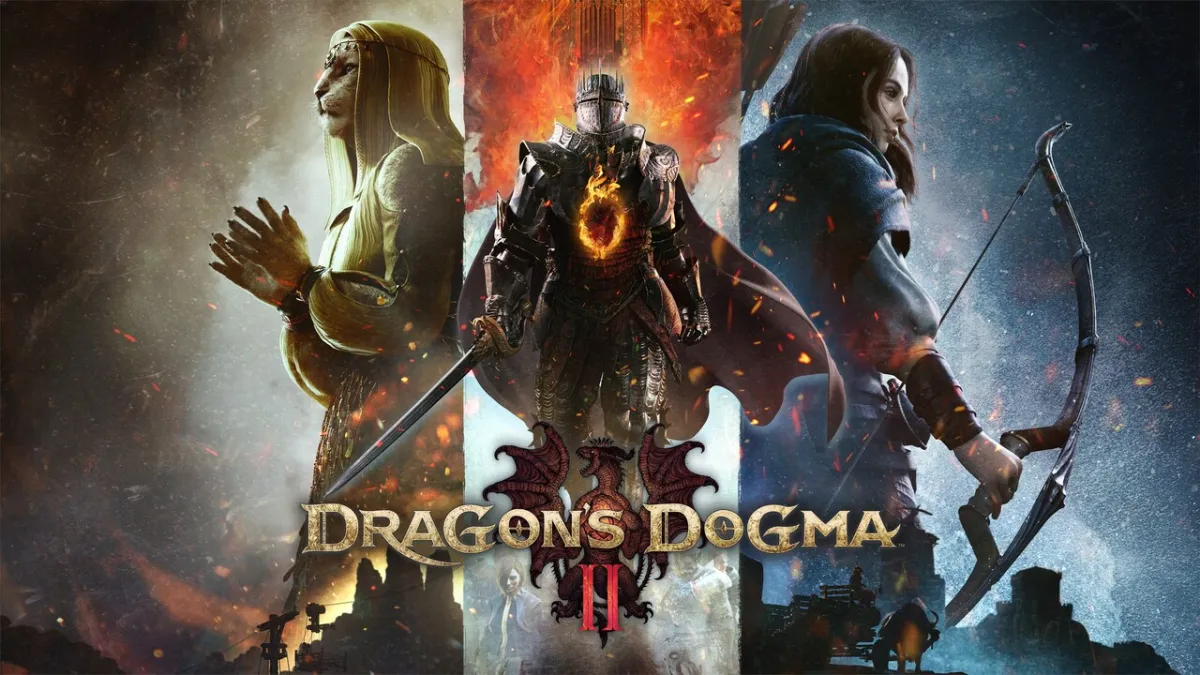




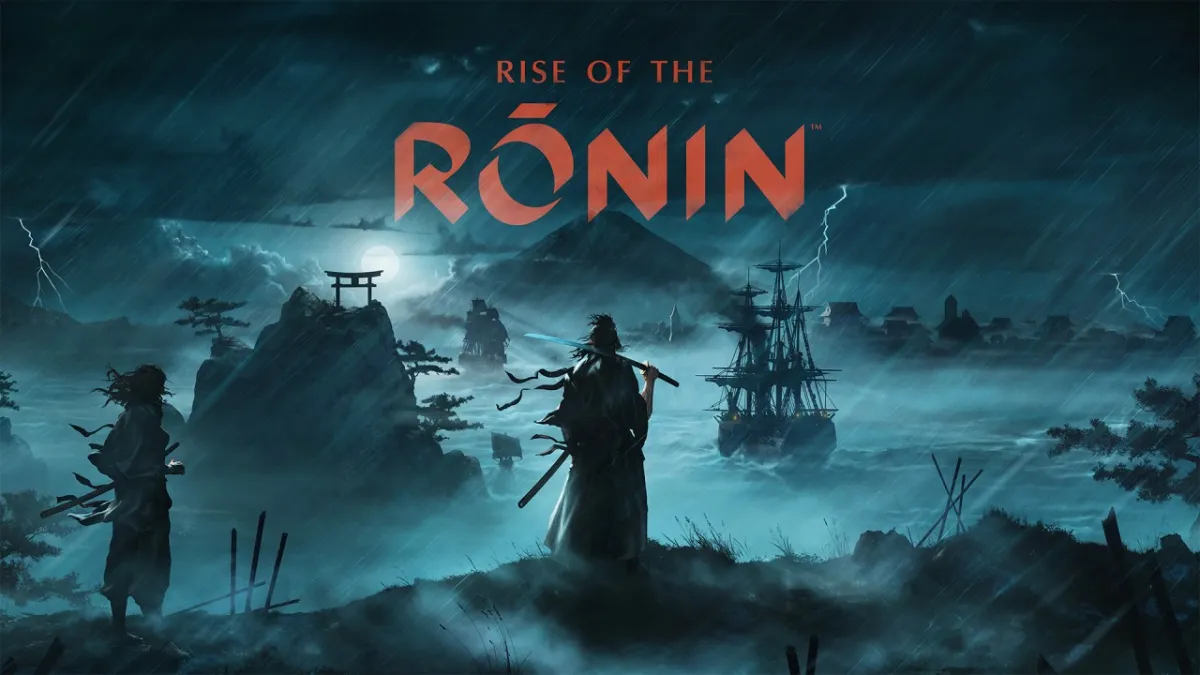

Published: Mar 20, 2024 10:00 am